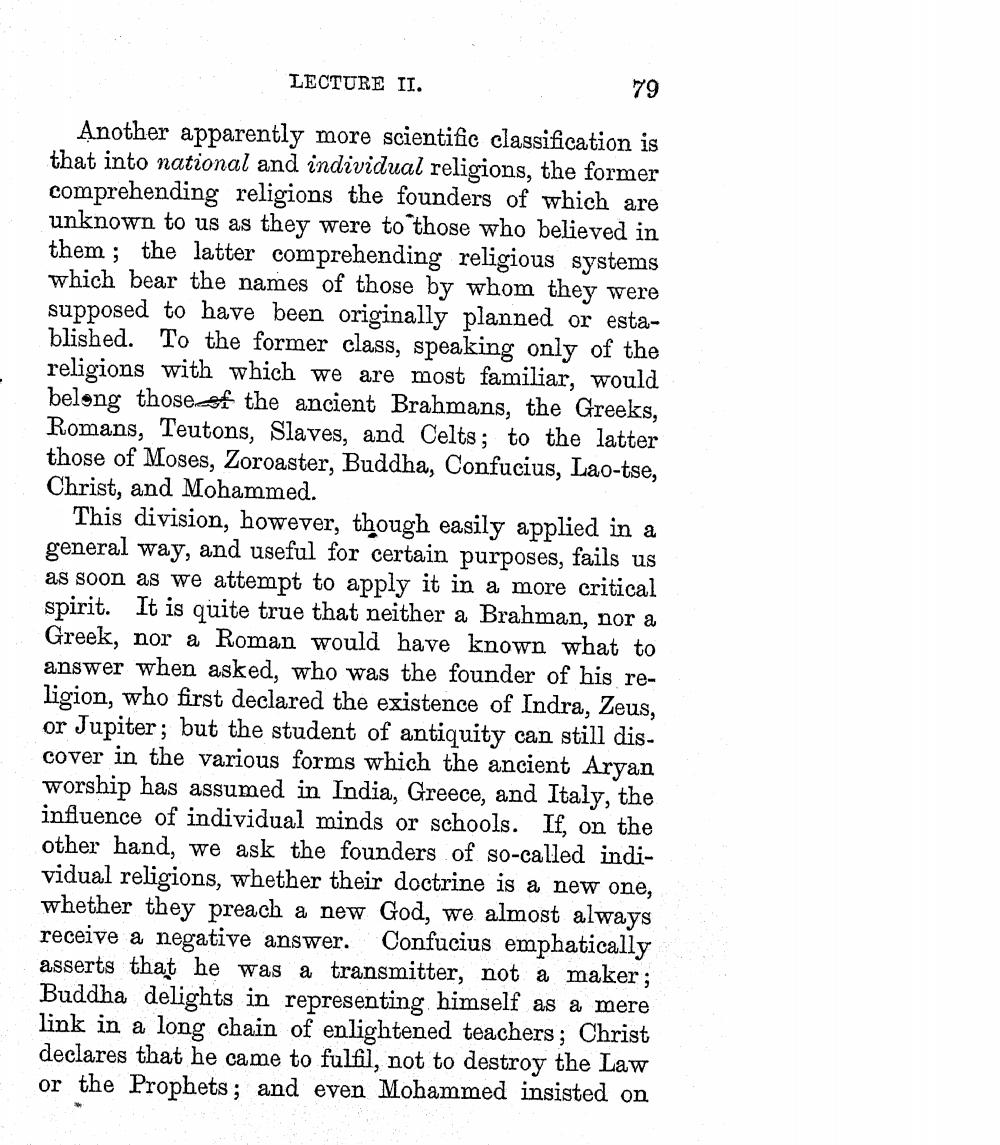________________
LECTURE II.
79
Another apparently more scientific classification is that into national and individual religions, the former comprehending religions the founders of which are unknown to us as they were to those who believed in them; the latter comprehending religious systems which bear the names of those by whom they were supposed to have been originally planned or established. To the former class, speaking only of the religions with which we are most familiar, would belong those the ancient Brahmans, the Greeks, Romans, Teutons, Slaves, and Celts; to the latter those of Moses, Zoroaster, Buddha, Confucius, Lao-tse, Christ, and Mohammed.
This division, however, though easily applied in a general way, and useful for certain purposes, fails us as soon as we attempt to apply it in a more critical spirit. It is quite true that neither a Brahman, nor a Greek, nor a Roman would have known what to answer when asked, who was the founder of his religion, who first declared the existence of Indra, Zeus, or Jupiter; but the student of antiquity can still discover in the various forms which the ancient Aryan worship has assumed in India, Greece, and Italy, the influence of individual minds or schools. If, on the other hand, we ask the founders of so-called individual religions, whether their doctrine is a new one, whether they preach a new God, we almost always receive a negative answer. Confucius emphatically asserts that he was a transmitter, not a maker; Buddha delights in representing himself as a mere link in a long chain of enlightened teachers; Christ declares that he came to fulfil, not to destroy the Law or the Prophets; and even Mohammed insisted on




